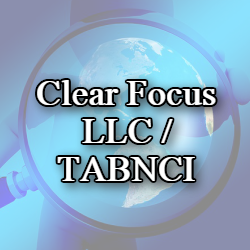Professional development goals are the blueprint for advancing your skills, career, and personal growth. Whether you aim for a promotion, master a new skill or foster leadership capabilities, these goals help bridge the gap between your current state and aspirations. Here’s how to set effective goals and actionable tips to achieve them.
Steps to Setting Professional Development Goals
-
- Identify Your Vision – Start by reflecting on your career trajectory. Where do you see yourself in five or ten years? Defining a clear vision guides your goals.
- Set SMART Goals – Goals should be Specific, Measurable, Achievable, Relevant, and Time-bound. For example, instead of “improve communication,” aim for “complete a public speaking course by Q2.”
Developing a Strategic Talent Pipeline
Building a strategic talent pipeline is crucial. This involves identifying the roles and skills that will be needed in the future and developing strategies to attract and develop talent to fill these roles. Organizations can leverage partnerships with educational institutions, internal training programs, and external recruitment agencies to ensure a steady flow of qualified candidates. This proactive approach helps organizations stay ahead of industry trends and technological advancements (Harrier Talent Solutions) (The Predictive Index).
Embracing Leadership and Technology
Effective leadership is vital for aligning talent strategy with business strategy. Leaders should promote a culture of innovation and agility, ensuring that employees are motivated and aligned with the company’s vision. Additionally, leveraging technology can enhance workforce planning and management. Tools such as talent analytics can provide insights into employee performance, skills gaps, and future hiring needs, enabling data-driven decision-making (Korn Ferry | Organizational Consulting) (The Predictive Index).
Setting Clear Expectations and Performance Metrics
Clear communication of business goals and how they translate into specific HR initiatives is essential. This includes setting expectations for employees and managers, and ensuring that everyone understands how their roles contribute to the company’s objectives. Regularly revising these expectations and performance metrics ensures ongoing alignment and allows for adjustments based on evolving business needs (The Predictive Index).
Prioritizing Employee Experience
A positive employee experience is key to retaining top talent and ensuring high levels of engagement and productivity. HR leaders should regularly solicit employee feedback and make meaningful improvements in areas such as work-life balance and professional development. Recognizing employee contributions also plays a significant role in maintaining morale and commitment to the organization’s goals (The Predictive Index) (HR Executive).
Continuous Improvement and Adaptation
Aligning talent strategy with business strategy is an ongoing process that requires continuous improvement and adaptation. Regularly reviewing and adjusting talent management practices to reflect changes in business strategy ensures that the workforce remains a dynamic and strategic asset. This includes upskilling current employees, adapting recruitment strategies, and fostering a culture of continuous learning and development (Korn Ferry | Organizational Consulting) (HR Executive).
Conclusion
Aligning talent strategy with business strategy involves a multifaceted approach that includes understanding business goals, developing a strategic talent pipeline, leveraging leadership and technology, setting clear expectations, prioritizing employee experience, and continuously adapting to changes. By following these steps, organizations can ensure that their workforce is well-equipped to drive business success and maintain a competitive edge.
For more detailed guidance and examples, you can refer to sources like: Harrier Talent Solutions, Korn Ferry, Predictive Index, and HR Executive (Harrier Talent Solutions) (Korn Ferry | Organizational Consulting) (The Predictive Index) (HR Executive).
Gary Brunson
gary@myclearfocus.com
Debra Rider
debra@myclearfocus.com
574.361.2674
Sustainable Growth & Profit Consultant, Coach, Mentor, and Counselor/Therapist for Business Owners and Professionals.


